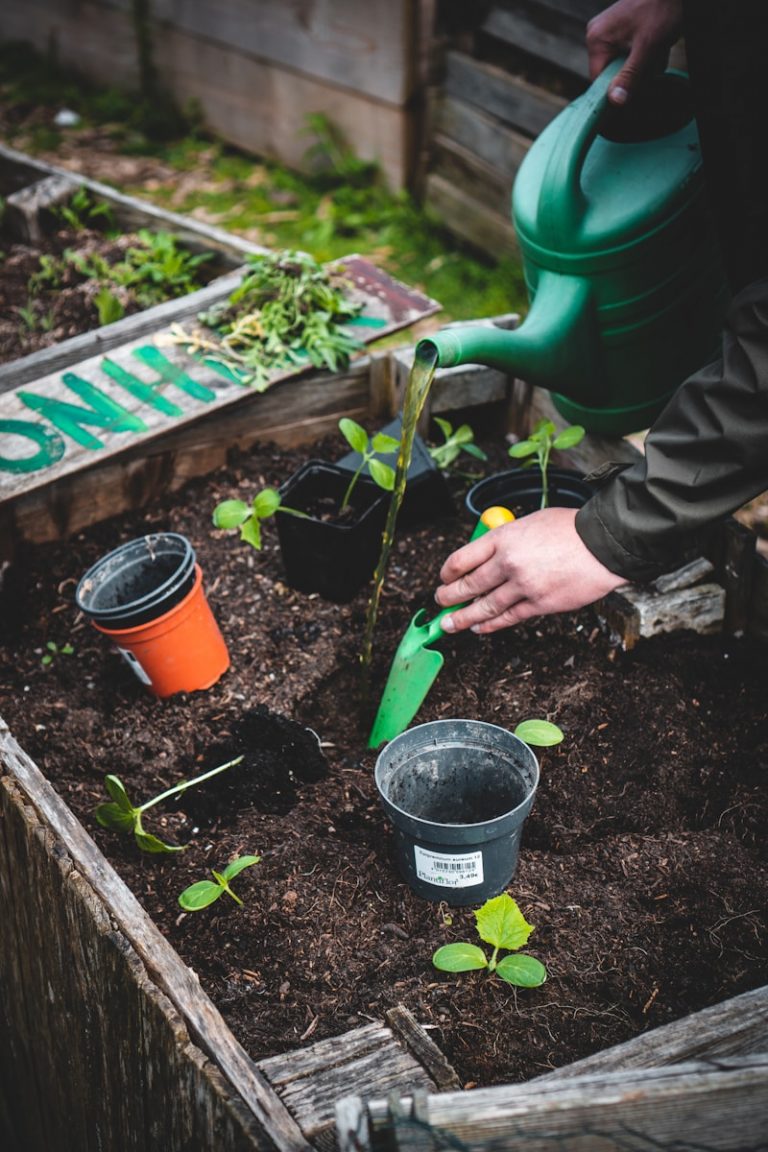Gardening is more than just planting seeds and watching them grow; it’s a journey of nurturing, patience, and, ultimately, reward. For beginners, the world of gardening may seem daunting, but with the right guidance and some basic knowledge, you can cultivate a thriving garden that not only beautifies your space but also improves your well-being.
Why Start Gardening?
Gardening isn’t just about aesthetics or food production—it’s also a proven way to enhance mental and physical health. In fact, 42% of those who spend time gardening at home report feeling healthier and happier. This isn’t surprising, as the act of gardening can be both therapeutic and fulfilling. Digging in the dirt, being outdoors, and nurturing life from a tiny seed to a full-grown plant can be deeply satisfying and help reduce stress.
In addition to its mental health benefits, gardening also offers physical exercise. It involves various activities such as digging, planting, weeding, and watering, which can burn calories and strengthen muscles. Whether you’re planting flowers, growing vegetables, or simply maintaining a lush green lawn, gardening keeps you moving and engaged with nature.
Choosing the Right Plants
One of the most exciting parts of gardening is choosing what to plant. For beginners, it’s essential to start with plants that are easy to grow and require minimal maintenance. Here are a few popular options:
- Flowers: According to the Society of American Florists, 73% of Americans have a high appreciation of flowers. Flowers not only add beauty to your garden but also attract pollinators like bees and butterflies, which are essential for a healthy ecosystem. Beginners might consider planting marigolds, sunflowers, or zinnias, as they are hardy and easy to grow.
- Herbs: If you’re interested in cooking, herbs like basil, parsley, and mint are excellent choices. They are easy to grow, can be planted in small spaces, and can be used fresh in your meals.
- Vegetables: Growing your own vegetables can be incredibly rewarding. Tomatoes, lettuce, and cucumbers are beginner-friendly and can thrive in small gardens or containers.
- Houseplants: If you don’t have outdoor space, houseplants like pothos, snake plants, or succulents are easy to care for and can brighten up your indoor environment.
Understanding the Challenges
Gardening isn’t without its challenges. Plants face numerous threats, from pests to competition for nutrients. For instance, food crops must compete with 30,000 species of weeds, 3,000 species of nematodes (microscopic worms), and 10,000 species of plant-eating insects. Understanding these challenges is crucial for maintaining a healthy garden.
Here are some tips to help you overcome common gardening problems:
- Weeds: Weeds can quickly take over your garden, competing with your plants for nutrients, water, and sunlight. Regular weeding and using mulch to cover the soil can help prevent weeds from growing.
- Pests: Insects and other pests can damage your plants. Organic solutions, like neem oil or insecticidal soap, can help control pests without harming beneficial insects.
- Nematodes: While some nematodes are beneficial, others can damage your plants’ roots. Planting nematode-resistant varieties or using organic soil amendments can help manage these pests.
Essential Tools for Beginners
Having the right tools makes gardening more enjoyable and efficient. Here are some basic tools every beginner gardener should have:
- Gloves: Protect your hands from thorns, sharp tools, and soil.
- Trowel: A small hand tool for digging and planting.
- Pruners: For trimming and shaping plants.
- Watering Can or Hose: Ensure your plants get the right amount of water.
- Rake: Helps in leveling soil and removing debris.
Tips for a Successful Garden
- Start Small: As a beginner, it’s tempting to plant everything at once, but it’s better to start small. Focus on a few plants and expand as you gain experience.
- Know Your Soil: Understanding your soil type is crucial for plant health. Most plants prefer well-draining, nutrient-rich soil. You can improve your soil by adding compost or organic matter.
- Water Wisely: Overwatering is a common mistake for beginners. Most plants need about an inch of water per week, either from rainfall or watering. Water your plants early in the morning or late in the afternoon to prevent evaporation.
- Be Patient: Gardening takes time, and not every plant will thrive. Learn from your mistakes and enjoy the process.
Conclusion
Gardening is a rewarding hobby that offers numerous benefits, from providing fresh produce to improving mental and physical health. While it comes with its challenges, the joy of watching your garden grow is well worth the effort. By starting with the right plants, understanding common challenges, and using essential tools, you’ll be well on your way to creating a thriving garden. Whether you’re planting flowers to enhance your space or growing vegetables to feed your family, the world of gardening awaits you—so dig in and get started!


0 Comments